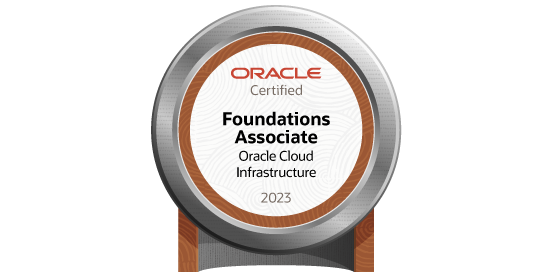How to install a RPM Linux Packages by using the Ansible Playbook
Posted by Mir Sayeed Hassan on November 22nd, 2023
How to install a RPM Linux Packages by using the Ansible Playbook
Install the yum package on same workstation ansible server
Create a directory
[root@test-ansible ~]# mkdir /home/ansible
Create a file as “inventory”
[root@test-ansible ansible]# vi inventory 192.168.***.131 :wq
Note: You can assign the single or multiple server host inside the inventory file
Create a file with install package config
[root@test-ansible ansible]# vi package1.yaml --- - hosts: 192.168.***.131 tasks: - name: Install package yum: name: telnet state: latest :wq
Pre-check before execute
[root@test-ansible ansible]# ansible-playbook -i /home/ansible/inventory package1.yaml --syntax-check playbook: package1.yaml
[root@test-ansible ansible]# ansible-playbook -i /home/ansible/inventory package1.yaml PLAY [192.168.***.131] ********************************************************************************** TASK [Gathering Facts] ********************************************************************************** Enter passphrase for key '/root/.ssh/id_ed25519': [WARNING]: Platform linux on host 192.168.***.131 is using the discovered Python interpreter at /usr/bin/python, but future installation of another Python interpreter could change this. See https://docs.ansible.com/ansible/2.9/reference_appendices/interpreter_discovery.html for more information. ok: [192.168.***.131] TASK [Install package] ********************************************************************************* changed: [192.168.***.131] PLAY RECAP ********************************************************************************************* 192.168.***.131 : ok=2 changed=1 unreachable=0 failed=0 skipped=0 rescued=0 ignored=0
Hence until here i have install the telnet package by using an Ansible Playbook
Install the yum package from workstation to another server
Add the IP Address of the different server in workstation
[root@test-ansible ~]# cat /home/ansible/inventory 192.168.***.131 192.168.***.130
Login to the Workstation ansible server & copy the ssh-keygen
[root@test-ansible ~]# ssh-copy-id -i .ssh/id_ed25519 192.168.***.130 /bin/ssh-copy-id: INFO: Source of key(s) to be installed: ".ssh/id_ed25519.pub" /bin/ssh-copy-id: INFO: attempting to log in with the new key(s), to filter out any that are already installed /bin/ssh-copy-id: INFO: 1 key(s) remain to be installed -- if you are prompted now it is to install the new keys root@192.168.***.130's password: Number of key(s) added: 1 Now try logging into the machine, with: "ssh '192.168.***.130'" and check to make sure that only the key(s) you wanted were added.
Note: Provide the passphare password Login & Verify the ssh-copy-id key present in different server (192.168.***.130)
[root@oemdb ~]# ls -la .ssh/ total 12 drwx------. 2 root root 48 Nov 22 05:52 . dr-xr-x---. 18 root root 4096 Jan 23 2021 .. -rw-------. 1 root root 185 Nov 22 05:54 authorized_keys -rw-r--r--. 1 root root 535 Jun 30 2019 known_hosts
[root@oemdb ~]# cat .ssh/authorized_keys ssh-ed25519 AAAAC3NzaC1lZDI1NTE5AAAAIPIeUIkDlUKzL/ZxDbhZBx/x2HO4STftNllCdNQadnpn NEWANSIBLE ssh-ed25519 AAAAC3NzaC1lZDI1NTE5AAAAIL6EVJctvsxnc2NzWOdjON58j9hb8wCmMicyUE+74Tfs MIR_ANSIBLE
Create a yaml file
[root@test-ansible ~]# cat /home/ansible/package1.yaml --- - hosts: all tasks: - name: Install package yum: name: telnet state: latest
NOTE: Here hosts: all It means any number of hosts are assign in inventory.
[root@test-ansible ansible]# ansible-playbook -i /home/ansible/inventory package1.yaml PLAY [all] ********************************************************************** TASK [Gathering Facts] ********************************************************* Enter passphrase for key '/root/.ssh/id_ed25519': [WARNING]: Platform linux on host 192.168.***.131 is using the discovered Python interpreter at /usr/bin/python, but future installation of another Python interpreter could change this. See https://docs.ansible.com/ansible/2.9/reference_appendices/interpreter_discovery.html for more information. ok: [192.168.***.131] ok: [192.168.***.130] TASK [Install package] ********************************************************** ok: [192.168.***.131] changed: [192.168.***.130] PLAY RECAP ******************************************************************** 192.168.***.130 : ok=2 changed=1 unreachable=0 failed=0 skipped=0 rescued=0 ignored=0 192.168.***.131 : ok=2 changed=0 unreachable=0 failed=0 skipped=0 rescued=0 ignored=0
Verify telnet package on 192.168.***.130
[root@oratdb ~]# rpm -qa telnet telnet-0.17-64.el7.x86_64
If you want to REMOVE the packages from the server, fallow below step
Edit the package1.yaml file & change the state to “absent”
[root@test-ansible ansible]# cat package1.yaml --- - hosts: all tasks: - name: Install package yum: name: telnet state: absent
Run the ansible-playbook
[root@test-ansible ansible]# ansible-playbook -i /home/ansible/inventory package1.yaml PLAY [all] ************************************************************* TASK [Gathering Facts] ************************************************ Enter passphrase for key '/root/.ssh/id_ed25519': Enter passphrase for key '/root/.ssh/id_ed25519': [WARNING]: Platform linux on host 192.168.***.131 is using the discovered Python interpreter at /usr/bin/python, but future installation of another Python interpreter could change this. See https://docs.ansible.com/ansible/2.9/reference_appendices/interpreter_discovery.html for more information. Enter passphrase for key '/root/.ssh/id_ed25519': ok: [192.168.***.131] ok: [192.168.***.130] TASK [Install package] ************************************************* changed: [192.168.***.131] changed: [192.168.***.130] PLAY RECAP *********************************************************** 192.168.***.130 : ok=2 changed=1 unreachable=0 failed=0 skipped=0 rescued=0 ignored=0 192.168.***.131 : ok=2 changed=1 unreachable=0 failed=0 skipped=0 rescued=0 ignored=0






